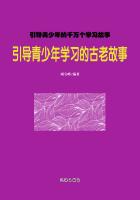Modern industry, by its very nature, therefore necessitates variation of labour, fluency of function, universal mobility of the labourer... We have seen how this absolute contradiction ... vents its rage in the incessant human sacrifices from among the working-class, in the most reckless squandering of labour-power, and in the devastation caused by social anarchy. This is the negative side. But if, on the one hand, variation of work at present imposes itself after the manner of an overpowering natural law, and with the blindly destructive action of a natural law that meets with resistance at all points, modern industry, on the other hand, through its catastrophes imposes the necessity of recognising, as a fundamental law of production, variation of work, consequently fitness of the labourer for varied work, consequently the greatest possible development of his varied aptitudes.
It becomes a question of life and death for society to adapt the mode of production to the normal functioning of this law. Modern industry makes it a question of life and death to replace the monstrosity of a destitute working population kept in reserve at the disposal of capital for the changing needs of exploitation with the absolute availability of man for the changing requirements of labour; to replace what is virtually a mere fragment of the individual, the mere carrier of a social detail-function, with the fully developed individual, to whom the different social functions are so many alternating modes of activity" (Marx, Capital ).
Modern industry, which has taught us to convert the movement of molecules, something more or less universally feasible, into the movement of masses for technical purposes, has thereby to a considerable extent freed production from restrictions of locality. Water-power was local;steam-power is free. While water-power is necessarily rural, steam-power is by no means necessarily urban. It is capitalist utilisation which concentrates it mainly in the towns and changes factory villages into factory towns.
But in so doing it at the same time undermines the conditions under which it operates. The first requirement of the steam-engine, and a main requirement of almost all branches of production in modern industry, is relatively pure water. But the factory town transforms all water into stinking manure.
However much therefore urban concentration is a basic condition of capitalist production, each individual industrial capitalist is constantly striving to get away from the large towns necessarily created by this production, and to transfer his plant to the countryside. This process can be studied in detail in the textile industry districts of Lancashire and Yorkshire;modern capitalist industry is constantly bringing new large towns into being there by constant flight from the towns into the country. The situation is similar in the metal-working districts where, in part, other causes produce the same effects.
Once more, only the abolition of the capitalist character of modern industry can bring us out of this new vicious circle, can resolve this contradiction in modern industry, which is constantly reproducing itself.
Only a society which makes it possible for its productive forces to dovetail harmoniously into each other on the basis of one single vast plan can allow industry to be distributed over the whole country in the way best adapted to its own development, and to the maintenance and development of the other elements of production.
Accordingly, abolition of the antithesis between town and country is not merely possible. It has become a direct necessity of industrial production itself, just as it has become a necessity of agricultural production and, besides, of public health. The present poisoning of the air, water and land can be put an end to only by the fusion of town and country; and only such fusion will change the situation of the masses now languishing in the towns, and enable their excrement to be used for the production of plants instead of for the production of disease.
Capitalist industry has already made itself relatively independent of the local limitations arising from the location of sources of the raw materials it needs. The textile industry works up, in the main, imported raw materials. Spanish iron ore is worked up in England and Germany and Spanish and South-American copper ores, in England. Every coalfield now supplies fuel to an industrial area far beyond its own borders, an area which is widening every year. Along the whole of the European coast steam-engines are driven by English and to some extent also by German and Belgian coal.
Society liberated from the restrictions of capitalist production can go much further still. By generating a race of producers with an all-round development who understand the scientific basis of industrial production as a whole, and each of whom has had practical experience in a whole series of branches of production from start to finish, this society will bring into being a new productive force which will abundantly compensate for the labour required to transport raw materials and fuel from great distances.
The abolition of the separation of town and country is therefore not utopian, also, in so far as it is conditioned on the most equal distribution possible of modern industry over the whole country. It is true that in the huge towns civilisation has bequeathed us a heritage which it will take much time and trouble to get rid of. But it must and will be got rid of, however, protracted a process it may be. Whatever destiny may be in store for the German Empire of the Prussian nation, [119] Bismarck can go to his grave proudly aware that the desire of his heart is sure to be fulfilled: the great towns will perish. [120]















